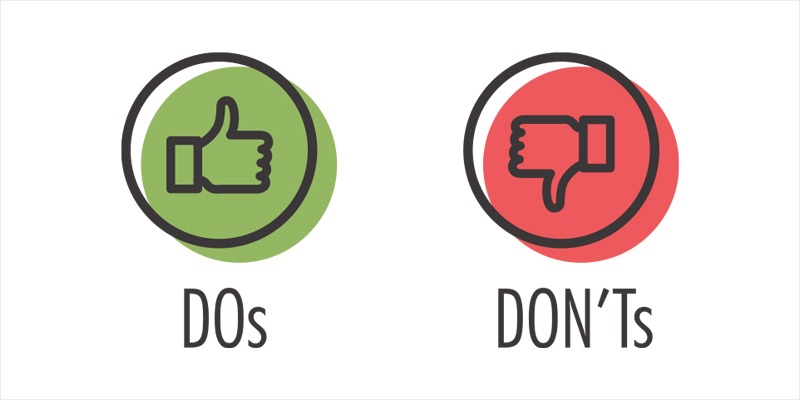Interviews are a pivotal step in landing a new role, and the key is to demonstrate that you’re the right fit for the job, the team, and the organisation. Here are essential do’s and don’ts to help you make the best impression.
The Do’s:
- Do Your Research – Before the interview, research your audience. Learn about the organisation’s culture, the reason behind the vacancy, and what they expect from the role. This will help you tailor your responses and show you’ve done your homework.
- Prepare Targeted Responses – Tailor your answer specifically to the job, department, and selection criteria. Highlight the aspects of your background that directly relate to the role and make sure the panel understand why you provided your example.
- Answer Behavioural Questions with “I” – In behavioural or situational questions, interviewers want to know what you’ve personally achieved. Avoid saying “we” when describing actions—focus on what you did.
- Give Detailed Answers, But Be Concise – Avoid one-word answers; they won’t give the panel enough information to assess your abilities. On the flip side, don’t ramble. Introduce your response, elaborate, and then wrap it up, preferably using a structure such as the “STAR” (situation, task, action, result) method.
- Ask Thoughtful Questions – At the end of the interview, you’ll likely be asked if you have any questions. Avoid asking questions about things you should already know, like the duties of the role or general information about the company. Instead, ask about the team, the goals of the team or section, or opportunities for professional development.
The Don’ts:
- Don’t Be Too Vague – Failing to provide specific details when discussing your experience or abilities can leave interviewers unsure about your competence. Always back up your statements with concrete examples.
- Don’t Oversell Yourself – Embellishing the truth or overselling your abilities can backfire. Be honest about your experience and what you can bring to the table.
- Don’t Criticize Past Employers – Never speak negatively about former employers, managers, or colleagues. It can make you seem difficult to work with and raise red flags for the panel.
- Don’t Focus on Personal Benefits – It’s best not to ask about benefits such as salary, leave entitlements, or other perks unless the panel raises these topics first. Asking about these too early can make you seem more interested in the benefits than the job itself.
Interviews are a balance of preparation, self-awareness, and communication. By understanding what interviewers are looking for, preparing thoroughly, and avoiding common pitfalls, you can approach your next interview with confidence and increase your chances of success. Navigating your next career move can be a daunting prospect, particularly if you have worked in the same position or organization for a significant period of time. If you’re looking for interview training or a better understanding of the interview process, please contact us at hello@cbrrecruitment.com.au.







